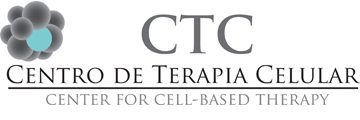 The project of the Center for Cell-based Therapy (CTC) focuses on advanced, basic, and applied research with stem cells (SC). The CTC consists of nine principal investigators (PIs) who are recognized leaders in Brazil in this research area. Twenty researchers and ten foreign collaborators participate in the CTC.
The project of the Center for Cell-based Therapy (CTC) focuses on advanced, basic, and applied research with stem cells (SC). The CTC consists of nine principal investigators (PIs) who are recognized leaders in Brazil in this research area. Twenty researchers and ten foreign collaborators participate in the CTC.
The present proposal provides continuity to and expands the experience acquired by the CTC in the initial CEPID project, with respect to the scientific content as well as the dissemination of knowledge and technology transfer to society, as can be seen at: http://ctc.fmrp.usp.br/ctc/
The scientific project involves an ambitious multidisciplinary research program whose objective is to study the cellular, molecular, and biological aspects of normal and pathological SC and to critically evaluate its therapeutic potential. The studies will be conducted with pluripotent SC (embryonic stem cells and induced pluripotent SC) and somatic SC (hematopoietic SC, Mesenchymal SC, and Endothelial PC).
Regarding the ESC, we intend to generate Brazilian cell lines to be expanded and used in preclinical and clinical protocols, as well as to contribute to the understanding of the mechanisms of pluripotency.
We will generate iPSCs derived from patients with Dyskeratosis congenita, Fanconi Anemia, Hemophilia A, and Parkinson’s disease to understand the mechanisms involved in the pathology, maintenance of pluripotency, and in the process of cell differentiation.
Hematopoietic SC will be derived from ESC and iPSCs and cell lines will be established both from normal and leukemic SC for studies on the mechanisms involved in the control of normal and neoplastic hematopoiesis. Transgenic animal models of acute promyelocytic leukemia will be generated and used for basic and preclinical studies.
Cancer SC will be studied focusing on the mechanisms of transition Epithelium-Mesenchymal and Endothelial-Mesenchymal (EMT and EndMT). These mechanisms will also be studied in the context of cell reprogramming and in the generation of SC.
Clinical assays will be conducted using mesenchymal SC in the treatment of types 1 and 2 insulin-dependent diabetes, severe refractory Aplastic Anemia, in the prevention of chronic and acute Graft-versus-host disease (GVHD), and in the failure of grafting in haploidentical allogeneic transplantation.
Finally processes will be developed for the production of SC on large-scale under GMP conditions for their clinical use.
